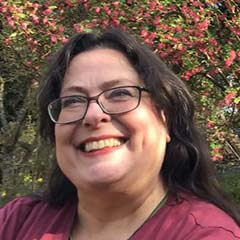7 May 2021
QAA Annual Conference Blog - Rethinking authentic assessment in a post-COVID world: Is it right to hope for change?

Author
Dr Jan McArthur
Senior Lecturer, Lancaster University
In the lead up to our Annual Conference on 11-13 May, we are running a series of blogs by conference session presenters. In this blog, Dr Jan McArthur, Senior Lecturer, Lancaster University looks at authentic assessment in a post-COVID world.
Authentic assessment has understandably become an increasingly popular and important idea in higher education. And yet, the idea that assessment methods should reflect the nature of the knowledge being assessed and the ways in which students may go on to use that knowledge, is surely so obvious that it is rather telling that we even need a special term for what should be basic good sense.
Higher education is also adept at taking a good idea and turning it into a buzzword, from which the original meaning drains away. A buzzword concept is no longer reflected on, challenged or probed. It becomes so obviously what we must do, that we no longer contemplate why we should do it. This I fear is the fate of some approaches to authentic assessment.
Beyond the buzzword: Rethinking authentic assessment
There are two interrelated ways in which we should rethink authentic assessment, based on my interpretation of Frankfurt School critical theory. Authentic assessment is often described as involving ‘real world’ tasks, but far too often this conflates the real world and the world of work. As Christopher Winch pointed out in 2002, the world of work is important, not least to individual and social wellbeing, but it is not all there is to the ‘world’. It is always damaging to consider the economic realm of life disarticulated from the social. Indeed, as Paul Ashwin explains in his 2020 work Transforming University Education: a manifesto, if we let economic purposes be our only guide to quality, we lose sight of what is essential about higher education.
Secondly, my use of authentic assessment shifts from the task to the person. Authentic assessment is that which contributes to the nurturing of students as independent members of the social whole. This paradox of individualism and social is at the heart of the critical theory. This also means that students’ wellbeing is interlaced with the wellbeing of others in society. In critical theory terms, we simply cannot make the world better for ourselves, if we do not make it better for others. According to critical theorist Axel Honneth, this is not simply a moral standpoint, it is an empirically grounded one, resting in the notion of mutual recognition.
Problems with authentic assessment in the existing university culture
Even if we accept a narrower conceptualisation of authentic assessment, with that greater focus on the world of work, it clashes with other ingrained aspects of university culture. The university has an enormous capacity to be inconsistent and contradictory and yet remain gloriously unaware of the tensions. How can we nurture authentic assessment and continue the relentless drive to standardisation in higher education? Emergency measures brought in because of COVID had the potential to liberate us from old ways of doings things, but in too many cases have been used to exacerbate this tendency towards standardisation.
Universities have become risk averse and frightened of unpopularity with students. Students must have the same epistemological diet of white bread, lest they choke on anything more nutritious or challenging. Outcomes must be predetermined and predictable. In what way, however, does this reflect any tenets of authentic assessment? Our students are presenting us with a dilemma that we are insufficiently prepared to tackle face on. Students [we are told] want assessment that is authentic, they want marking criteria with fine granularity, they want feedback that is personalised and respectful, and they want the whole system to be anonymous. The tensions are multiple.
The implications of COVID
My development of these ideas pre-dates COVID. But COVID has enabled people to understand the interconnections between individual and social wellbeing in ways that few other crises have, including the environmental emergency. So, potentially, looking beyond COVID we could have a kinder and more understanding world where mutual interdependence and recognition are better understood. If so, the form of authentic assessment I am talking about moves from the fringes to a more mainstream idea.
Sadly, I think the signs so far go against this happening. In higher education we can become excited about change and so-called innovation, but we often cannot really be bothered seeing it through in full - for example, the institutional change mentioned earlier to provide an ‘authentic’ context for authentic assessment. So we tinker instead. Faced with a crisis, universities are superb at tinkering in order to respond a bit, but not too much. This has long been the story with assessment in higher education. Those who cry out for greater order, standardisation and predictability appeal to a base form of common sense that nuanced approaches to authentic assessment cannot reach. So my worry when I look to a post-COVID world is not how much will be different, but how much will be the same, or worse.
Dr Jan McArthur is a speaker in a breakout session entitled ‘Authentic assessment in a post-COVID world’ at the QAA Annual Conference in May. To find out more, and book your place, visit our event booking site.
